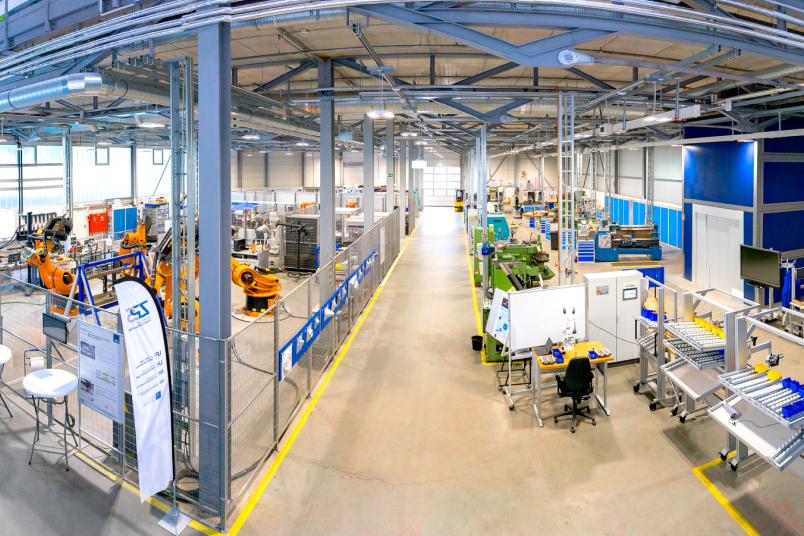
Work Science
EU project on digital transformation in companies approved
An international research team is developing solutions to help companies and organizations develop the necessary skills and strategies for digitization.
Learning Factories nowadays help acquire digital skills in education. However, uniform quality standards for Learning Factories and qualification programmes for those responsible of education in the field of digitization are still lacking. This is to be changed by the new international project “Digital Coach”, which is funded by the European Union with 450,000 Euros in the “Erasmus plus – Strategic Partnerships” programme for three years from September 2020 on. Head of the project is Professor Martin Kröll from the Institute of Work Science at Ruhr-Universität Bochum (RUB). The aim is to establish the task profile of a “Digital Coach”.
Established maturity model included
The project deals with the question of how the necessary skills can be fostered to shape the digital transformation in companies or organizations. To achieve this, the project team is developing a training programme for Digital Coaches. It addresses people who are active in education and training and combines two concepts which have already been established: Learning Factories and the maturity model “Adaption” developed by the Chair of Production Systems in Bochum.
“Adaption was developed in extensive projects with practitioners and has proven to be helpful by supporting companies in determining where they currently pend in the process of digital transformation and what concrete measures need to be taken,” Professor Bernd Kuhlenkötter explains. He is Head of the Learning and Research Factory at RUB and holds the Chair of Production Systems. The maturity model compares target and actual status and thus shows strengths and further development needs with regard to the digital competencies of companies. It also helps develop competence development programmes and individual future strategies for companies.
Within the framework of the new research project, the model will be further developed, tested and implemented in selected training companies in various EU countries. In addition, the project partners will develop quality standards for Learning Factories. “Learning Factories offer many opportunities to acquire digital skills to interested parties. It makes sense to professionalize the acquisition of skills and to integrate them into existing in-company training and continuing education,” explains Martin Kröll.
Establishing the task profile of the Digital Coach
In the future, Digital Coaches will support companies to develop and implement digital business models. In particular, they are to promote thinking from the customer’s perspective as well as cross-industry thinking and spread agile process thinking involving all process participants. A central goal is to promote the acceptance of digital strategies as well. Thus, the Digital Coaches can contribute their knowledge of value-added networks and the changes they bring about through digitization.
Based on these results, the project team is developing a certificate programme for Digital Coaches. It consists of various self-learning modules on the following topics: Quality Management as the Basis of Digitization in Companies, Corporate Strategy for Digital Transformation and Agile Project Management, Possibilities and Limitations of Learning Transfer and Learning Location Cooperation, Value-Added Processes as Starting Points for Digitization, Strategies for Securing the Acceptance of Digital Solutions in Companies, Limitations and Possibilities of Participation in the Implementation of Digital Solutions, and the Development of New Business Models Against the Background of Digitization and Corporate Cooperation.